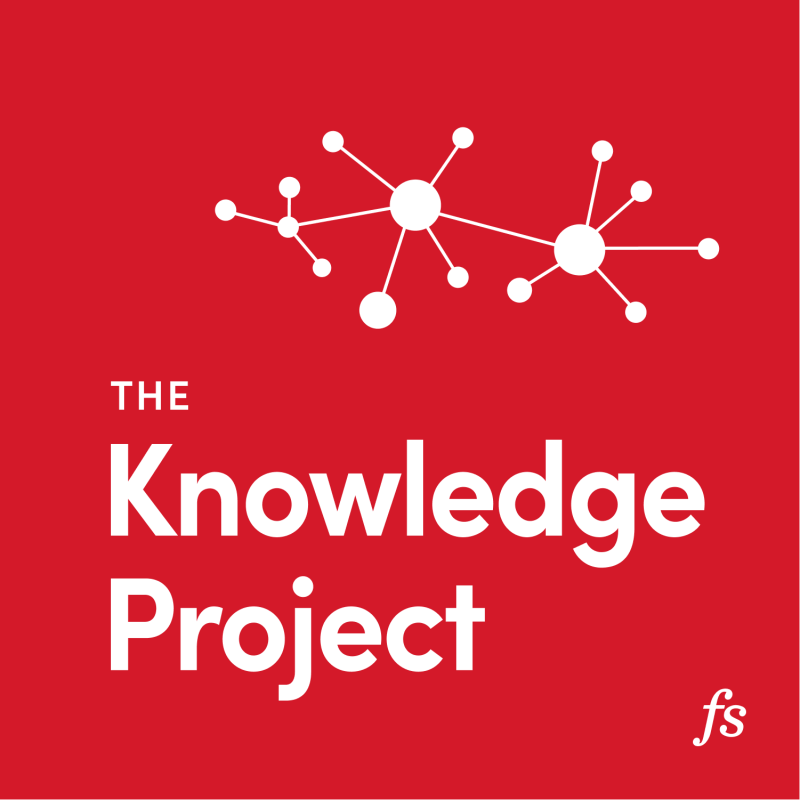Author Jim Collins goes under the hood and shows what all enduring companies have in common.
Listen on: YouTube | Apple Podcasts | Spotify | Transcript
If you look at your bookshelf right now, I’d wager that you already have at least one or two books written by our next guest.
Jim Collins is a world-renowned lecturer and consultant and the author or co-author of six books, including the canonized works of business schools everywhere, Built to Last and Good to Great. Having spent nearly 30 years meticulously researching and documenting what makes great companies tick, Jim is a wellspring of practical wisdom and ideas that can help transform ho-hum operations into world-class enterprises.
This is one of our longer interviews, at just under two and a half hours, but it’s packed with incredible insights and detailed examples that are immediately useful.
Jim generously describes the inner workings of outstanding companies, how they got there, and what they can do to ensure longevity. We also discuss luck, leadership, and what it takes to get your own flywheel humming.
Here are a few highlights from our conversation:
People think about luck as kind of “what” luck but I’ve had great “who” luck in my life. And “who” luck is when you come across somebody who changes your trajectory or invests in you, bets on you, gives you guidance and key points.
The essence of the 5 is an answer to the question, “What is the truth of your ambition?” Is it really about what you’re trying to get done and contribute and how you want to impact the world, to build something exquisite, or to create a beautiful painting or a marvelous piece of music or whatever the thing is that you’re working on? Or is it in the end really, truly, mostly about you? About what you get, about how you look, about what you garner, about how people think of you? Your ambition is channeled into self. The essence of the 5 is they’re maybe even more ambitious than most people, right? But the ambition is not about them. It’s all channeled outward into the company or into a purpose that’s larger than them.
I think that the notion of accepting the reality of those probabilities and then separating good decision–adverse outcome, is a better approach than bad decision process–good outcome. Because bad decision process with good outcome reinforces bad process, which then ends up producing compounding in the wrong direction.
You have to step back and say, “Well, it’s not necessarily that they have better information. It’s not necessarily that they had better data. It’s not necessarily that they saw things in the industry that other people didn’t see.” The comparison companies saw often the same things. But what was interesting to see was, at that very moment in history, the capacity of one group of people to essentially look at the facts that everybody can see on the table and choose to pay attention to the really ugly ones versus to discount the ugly ones.
What we found is that the most durable results happen as a series of good decisions that accumulate one upon another over a very long period of time, that create a massive compounding effect.
The great irony is that the short-term focus of “We can’t miss today, but we can’t miss any for the next 20 cycles, 20 years, 30 years, 40 years,” means that you have to be constantly investing for down the road, or else you’re going to miss somewhere down the road. And that is what the power—so for me, the power of the march isn’t about just this year. It’s the commitment to the consecutive performance that will force you to innovate ahead of disruptions.
I think that two things, if you were sort of thinking about seedbeds of how we would help young people grow into the leaders that our world desperately needs in all walks of life—it’s one, don’t be a bystander. See what has to be done and someone’s got to do something. And if you feel someone’s got to do something, then you can exercise to the art of getting people to want to do what you see must be done with you. The second is stop taking care of your career. Start taking care of your people. And if you do that, they won’t let you fail.

